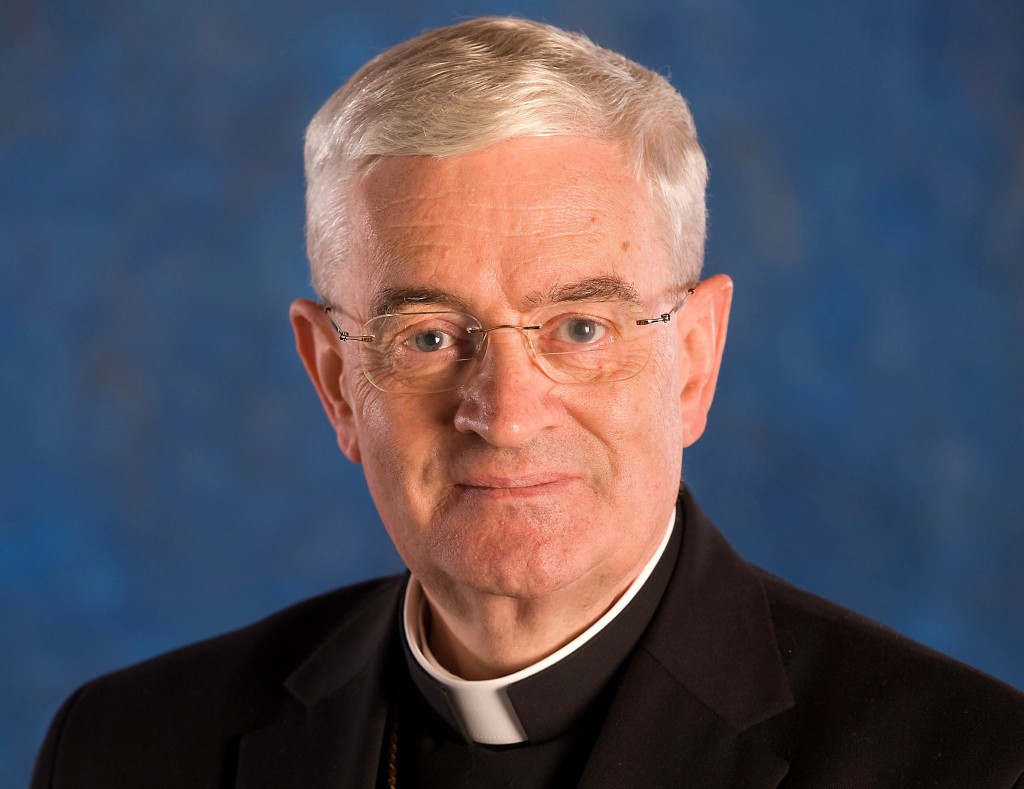
Lay people must navigate their way between speaking out honestly for the sake of the Church and maintaining a healthy loyalty to their bishop, Melbourne Auxiliary Bishop Peter Elliott said last week.
The concomitant demands revealed an “important tension” at the heart of contemporary Church life, particularly in the wake of the Second Vatican Council’s teaching that the Church is properly thought of as being made up of all its members – lay, religious and clerical alike.
Bishop Elliott made the comments in a wide ranging interview with The Record, traversing the issues he spoke to in his “Red Mass” homily on January 29 (published in full, pages 10-11), delivered before judges and lawyers to mark the beginning of Victoria’s legal year.
“Particularly at this time, when the Church is passing through difficulties, people have to be honest and pass on their views,” Bishop Elliott said.
“At the same time [they should] maintain a healthy loyalty to their bishop.”
Lay people have not only the prerogative to speak honestly, but also the obligation to be properly informed about matters affecting the Body of Christ.
Mainstream secular media had a patchy record in covering hot-button contemporary issues in a broad and fair way, and it would be ideal if Catholics consumed media from a wider range of outlets.
“There is a great need for alternative information to equip the people,” Bishop Elliott said.
“Catholic media is gradually emerging as an alternative source of information.”
Bishop Elliott has recently returned from a trip to London and was surprised that virtually no senior Church figures there were aware that Australia had, for the time being at least, bucked the trend of legalising same-sex marriage.
“There is a sense that same-sex marriage, just like the communists used to say, is inevitable.
“[Alternative media] breaks the illusion that is created there. It is significant,” Bishop Elliott said.
Alternative media was also important in equipping lay people for their primary apostolate of living, working and raising families in the world.
“What you do, how you serve people through the law each day is the work of God,” Bishop Elliott said during his Red Mass homily.
“Once you see your work as part of our journey of faith, then any narrow secular interpretation of your profession fades.”
The radical separation between the sacred and the secular which an “extremist minority” were trying to impose on Australian society, was illusory, Bishop Elliott told The Record.
“Ultimately, everything belongs to God, particularly our daily work. That is the spirituality spreading through the Church.”
He said attempts to impose a strict separation between Church and State in Australia represented a ‘constitutional cane toad’ – a forced and incorrect interpretation of the Australian Constitution.
“I object to the importation of an American notion of separation of Church and State. The intention of the founding fathers was that there would be no established church, [not] dogmatic to militant secularism,” the bishop said.
“We have to be alert that this kind of extreme secularism is not imposed by minority groups.”
Just as Catholics have to guard against tides hostile to religiosity, so too do they have to be wary of reducing the faith to the level of tribal Catholicism, “a kind of club loyalty” as Bishop Elliott described it on January 29.
“We need more than a set of doctrines. They are not just catch phrases,” Bishop Elliott told The Record. “Pope Benedict shows us the way [to avoid tribalism] in the Year of Faith, by focusing on Jesus Christ and a personal relationship with him with an emphasis on the Sacraments of Eucharist and Reconciliation.
“That is the best antidote to a tribal Catholicism where you just think of yourselves as a holy clan.”
Living a sanctified life also means moving beyond the faith of one’s childhood, Bishop Elliott told The Record, reiterating parts of his Red Mass homily.
“Many professional people are very well educated [in their field] but still have this gap between their professional training and what they have learnt about the faith.
“They are still surviving on what they learnt in school 40 to 50 years ago,” Bishop Elliott said.
An adult understanding and lived experience of the “objective content” of the faith was necessary to ameliorate against a “privatised faith” in which challenging elements were ignored or rejected.
“The faith of little children has its limits. We are called to an adult faith – not some childish jumble of pious bits and pieces or sentimental feelings, lingering since primary school years,” the bishop said during his homily.
Despite occasional conflagrations, the fissures that surfaced in the Church after the Second Vatican Council, between groups emphasising sanctification and those emphasising action, were healing.
“I think a lot of the polarisation that happened after Vatican II is changing. It’s still there but it’s shrinking.
“The extremist groups in the Church are much smaller than they used to be and there is an integration of faith and life which is very healthy. The new spiritual movements are part of that,” Bishop Elliott said.
Bishop Elliott also provided an update on the progress of developing new texts for rites in the three Ordinariates for former Anglicans in the United Kingdom, America and Canada, and Australia.
The Vatican commission Anglicanae Traditionas, of which Bishop Elliott is a member, met at the Brompton Oratory, London, last month, successfully completing their work on rites for the Eucharist and Baptism.
The bishop said he hoped they would be approved by the two congregations or departments of the Holy See charged with overseeing their development, the Congregation for the Doctrine of the Faith and the Congregation for Divine Worship.